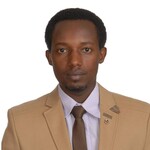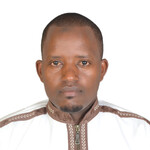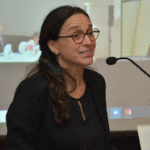FAO Side Event "Disaggregation of the SDG indicator 6.4.2 (level of water stress) by river basin" at the UN 2023 Water Conference
Date: Friday 24 March 2023
Timing: 11:00 - 12:15 (EST)
Format: onsite (Conference Room 11, UN headquarters, New York) and online
Background
While at global level water stress does not seem to present a serious threat to the sustainability of water withdrawal and use, the situation appears much grimmer if a closer look is given to the status of water resources at basin and sub-basin level. Whereas data are available, situations of high and very high water stress can be found in many regions across the globe.
Unfortunately, such information is often not available to water managers and decision makers, due both to the scarcity of sufficient data but also to the lack of methods capable to transform the existing data into usable information. Hence, disaggregating water stress is crucial to provide a finer view of both its causes and effects, allowing to target interventions at areas with high water stress and sectors with high water use.
This event will showcase a few innovative methods to disaggregate water stress (SDG 6.4.2) and its components at catchment and river basin level, through the presentation of a few case studies prepared in various countries following different methodologies.
Objectives
The objectives of this event are:
- To illustrate the proposed methods for the disaggregation of water stress;
- To present the case study of Rwanda;
- To discuss the methods and their implications for water management and policy with the other country partners.
Partners
The event is organized by the Rwanda Water Resources Board (RWB), in collaboration with the Food and Agriculture Organization of the UN (FAO), Agência Nacional de Águas e Saneamento Básico (ANA) – BRAZIL, Istituto Superiore per la Protezione e la Ricerca Ambientale (ISPRA)– ITALY and the Stockholm Environment Institute (SEI) – USA.
Agenda
11.00- 11.10 (EST) - Welcoming remarks
- Sasha Koo-Oshima, Deputy Director, Land and Water Division, FAO
- Emmanuel Rukundo, Director General, Rwanda Water Resources Board (RWB), Rwanda
11.10 - 11.25 - Keynote Presentation 1: Disaggregation of the level of water stress (SDG 6.4.2) at river basin level: why? How?
- Virginie Gillet, Technical Officer, Land and Water Division, FAO
11:25-11.35 - Keynote Presentation 2: The disaggregation of the level of water stress at river basin level in Rwanda: strengths and weaknesses of the applied method and usefulness for decision making
- Alsaad Ndayizeye, River Flood Control Specialist, SDG6.4.2 Indicator Focal Point RWB, Rwanda
11:35-12:05 - Discussion Panel:
- Emmanuel Rukundo, RWB, Rwanda
- Alsaad Ndayizeye, RWB, Rwanda
- Felipe De Sa Tavares, Superintendent of Water and Socioeconomic Studies, Agência Nacional de Águas e Saneamento Básico (ANA), Brazil
- Martina Bussettini, Head - Area for Hydrology, Hydromorphology, Hydrodynamics and Freshwater Ecosystem Dynamics, Environmental Monitoring and Biodiversity, Conservation Department, Istituto Superiore per la Protezione e la Ricerca Ambientale (ISPRA), Italy
- Annette Huber-lee, Senior Scientist, Stockholm Environment Institute (SEI), USA
12:05-12:15 - Closure
- Emmanuel Rukundo, RWB
- Sasha Koo-Oshima, FAO
Speakers
Organizers
Emmanuel Rukundo, Director General, Rwanda Water Resources Board (RWB) - Rwanda
Emmanuel Rukundo, Director General, Rwanda Water Resources Board (RWB) - Rwanda

The Rwanda Water Resources Board is the government institution for ensuring sufficient water resources for long-term economic growth and reducing the impact caused by flooding and landslides risks. He holds a Master’s degree and Ph.D. in the Civil engineering department, Hydraulics from Yildiz Technical University, Istanbul, Turkey. Prior to this, he worked as an Academician and was the Head of the department of civil and water resources Engineering for 5 years. His main research interests are: the impact of climate change on water cycle, hydrological and hydraulics models and groundwater modeling. He is the author and co-author of several water-related papers in international journals and national and international conferences.
Alsaad Ndayizeye, River Flood Control Specialist, Rwanda Water Resources Board (RWB) - Rwanda
Alsaad Ndayizeye, River Flood Control Specialist, Rwanda Water Resources Board (RWB) - Rwanda

He serves as SDG 6.4.2 Indicator Focal Point. He holds a Master's degree in Water Resources and Environmental Management from the University of Rwanda, with an extensive experience in water resources evaluation and planning using different modeling tools including WEAP Model. He participated in the development of the WEAP Model for Rwanda which was used for a plug-in for the calculation of SDG 6.4.2 including a scenario analysis of strategies for reducing water stress, as well as detailed WEAP models for different catchments.
Partners
Martina Bussettini, Research Director, Italian National Institute for Environmental Protection and Research (ISPRA) – Italy
Martina Bussettini, Research Director, Italian National Institute for Environmental Protection and Research (ISPRA) – Italy

She leads the Area of Hydrology, Hydromorphology, Hydrodynamics and Freshwater Ecosystem Dynamics at ISPRA. She is a hydrologist, MSc in Hydraulic Engineering, PhD in Fluvial Hydromorphology. Former Chief Engineer in the Monitoring Networks Area at the former Italian National Hydrological Survey (Servizio Idrografico e Mareografico Nazionale), successively Head of Hydrology and Monitoring Networks Unit at the Italian National Environment Protection Agency - APAT.
She coordinates the national technical activities for implementing water policies on integrated and sustainable catchment management, integrated water resource management, flood risk assessment and management, drought assessment and management. To this aim, she has developed methodological frameworks, tools and approaches and published books, guidelines and scientific papers in the relevant journals. She has coordinated, participated, evaluated and advised several European research projects. She holds national yearly training courses on river hydromorphological survey and assessment and thematic seminars at University.
She is the national Focal point in the European Commission for the implementation of EU Floods Directive and the coordinator of the relevant European Commission Working Groups on Hydromorphology and Hydrology (ECOSTAT, ATG On Hydromorphology, WG on Temporary Stream assessment), aimed at highlighting the role of physical processes as a key to integrate ecological protection and flood risk management.
She has been involved since 2002 in the WMO CHy working groups, where she has co-authored papers and WMO guidelines related to water resources management and environmental flows, representing CHy in the relevant international symposia. She is also a member of the the Intergovernmental Working Group on Drought (IWG), which was established in September 2019 during UNCCD COP14.
Felipe De Sa Tavares, Superintendent of Water and Socioeconomic Studies, National Water and Sanitation Agency (ANA) - Brazil
Felipe De Sa Tavares, Superintendent of Water and Socioeconomic Studies, National Water and Sanitation Agency (ANA) - Brazil

He is responsible for issues related to water quality, supply and demand for water resources, climate change, management of the National Information System on Water Resources and economic studies applied to sanitation and water resources. He holds a Master's degree in Applied Economics from USP, with extensive experience in quantitative methods, including mathematical and statistical methods. He was Director of Privatizations at the Ministry of Economy, previously he was General Coordinator of Economic Intelligence at the Infrastructure Development Secretariat of the same institution. Prior to the government, he served as Senior Economist at Tendências Consultoria Integrada, where he was responsible for issues of economic regulation in the infrastructure sectors and quantitative analyzes applied to regulatory problems.
Sasha Koo-Oshima, Deputy Director, Land and Water Division, Food and Agriculture Organization of the United Nations (FAO)
Sasha Koo-Oshima, Deputy Director, Land and Water Division, Food and Agriculture Organization of the United Nations (FAO)

She has nearly 35 years of experience in international assistance and policy development in agriculture water and environment/natural resource management. Currently, she is the Deputy Director and Head of Water at the UN Food & Agriculture Organization (FAO), leading programs on sustainable land and water management and governance, data and information, One Health and AMRs in the environment, and integrated water resources management with linkages to climate, health, and food and nutrition security.
She formerly served as Senior Advisor at the U.S. Environmental Protection Agency Office of Water, and as Secretariat of the Organisation for Economic Co-operation and Development (OECD), where she directed and managed international environmental health and water programs, strategized in the development of rules and guidelines on point-source and diffuse pollution controls for protecting health and the environment through the GEF Caribbean Wastewater Revolving Fund and the Millennium Challenge Corporation Cabo Verde Compact on sustainable water infrastructure financing as well as those in the U.S. leading to community resilience, (groundwater and rain)water storage and wastewater reuse. She is now on the Governing Boards of the World Water Council, Executive Council of the International Commission on Irrigation and Drainage, and the CGIAR’s Water Land Ecosystems, and UNEP Global Partnerships on nutrient and wastewater management, circular economy, and is implementing and supervising a substantial set of country projects.
She published, sponsored and peer-reviewed extensively on international water issues, such as the UN World Water Development Reports, FAO-WHO Wastewater Reuse Guidelines for Agriculture, FAO reports on Agriculture-Nature Based Solutions, Wealth of Waste: The Economics of Wastewater Reuse, US Reuse and Direct Potable Reuse Guidelines, Desalination and Agriculture, Agriculture Water Quality Guidelines for China, and the OECD country Water Governance reviews among others.
Annette Huber-Lee, Senior Scientist, Stockholm Environment Institute (SEI) - US
Annette Huber-Lee, Senior Scientist, Stockholm Environment Institute (SEI) - US

She specializes in the planning and management of water resources, linked to economics. She currently leads three major programs of applied research at the intersection of water, energy, and food (WEF nexus) using robust decision support (RDS) techniques in Africa, Asia, and the Middle East to understand how to plan for resilience in the face of climate change.
Her work also includes economics and the use of long-range multi-disciplinary scenarios in planning for resilience in the context of public policy. Annette has a B.S. in Agricultural Engineering from Cornell University, an M.S. in Civil and Environmental Engineering from the Massachusetts Institute of Technology, and a Ph.D. in Engineering Sciences from Harvard University.
Virginie Gillet, Land and Water Officer, Food and Agriculture Organization of the United Nations (FAO)
Virginie Gillet, Land and Water Officer, Food and Agriculture Organization of the United Nations (FAO)

Land and Water Officer at FAO headquarters. She is a water expert with 20 years of international experience on water data and water governance. French agronomist, she is holding a PhD in water policy from University of South Australia. She is currently working with the FAO land and water division as a Water Resources Assessment expert and acts as UN-Water alternate for FAO.

